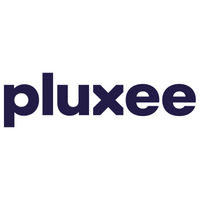How to use recognition to motivate employees and change behaviour
If you’re not yet convinced of the importance of employee recognition, reading about Maslow's Hierarchy of Needs is a good place to start.
Maslow breaks down employees’ needs into hygiene factors. To successfully engage and motivate your employees, you must meet each hygiene factor which forms the base of a pyramid of motivators – with recognition at the top.
Business leaders still adopt Maslow’s original theories today, harnessing the power of recognition to motivate employees and drive behaviour change.
Maslow’s hygiene factors include status, security, workplace relationships, personal life and more. The pyramid of motivators begins with personal growth and moves up to advancement, responsibility, work itself, achievement and recognition.
The critical thing about this motivational theory is that once you’ve completed or satisfied a level, it no longer holds power as a motivator. Your strategy must factor in each step of the pyramid to be effective long-term.
Pink’s motivational theories complement Maslow’s studies, identifying that three essential elements of effective employee motivation are autonomy, mastery, and purpose.
Apply theories to behavioural change
Once you understand the theories that underpin employee recognition, it becomes clear how to embed them into your business and apply them to meet business needs.
The first motivator is personal growth, and by embarking on a personal development plan (PDP), employees are creating opportunities to improve their skills and grow in their roles.
Once employees achieve this growth, they will naturally look towards advancement, so it’s essential to create those routes within your organisation. If they aren’t present, your employees may lose the motivation to continue giving their time and effort to stick with their PDPs. Alternatively, they may find an organisation that can help them advance, using the new skills you’ve nurtured.
With advancement comes additional responsibility – extra tasks or people management. Next, a more challenging workload that meets your employees’ evolving interests. These steps lead to employees achieving the goals they set out in their PDP and, finally, being recognised and rewarded for their efforts.
If you reach a point where you cannot fulfil the next level of motivation and progress with your employees, your plans will stagnate and those who were motivated at the start will become less committed.
Meaningful recognition
Nothing inspires a workforce more than seeing their peers achieve their goals and thrive with the recognition that follows. Your early adopters and success stories are essential for improving buy-in to your plans across the rest of the business.
Your recognition strategy plays a crucial role.
The recognition element must be communicated across the business, whether through internal communications, team meetings, or a company-wide presentation. The more noise you make in recognising those who have adopted your desired behavioural changes, the more people will become aware of it.
You’ve piqued their interest. They’ve seen what others have achieved. Strengthen the process by rewarding in a meaningful way.
When rewarding employees, there is no one-fits-all approach. Some employees may value having extra holiday allowance, others may prefer an experience, and some will appreciate a salary boost.
The more inclusive and bespoke the rewards on offer, the more appealing they’ll be to your entire workforce.
Recognition underpins theories of motivation and rewards hold power. Discover what matters most to your employees and align their needs to your business goals to create a world of opportunities for all.
Supplied by REBA Associate Member, Pluxee UK
Pluxee UK, is a leading employee benefits and engagement partner that opens up a world of opportunities to help people enjoy more of what really matters in their lives.








